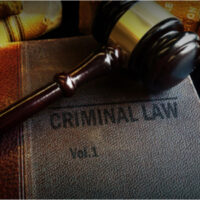When Is Evidence of Other Possible Crimes Admissible in a Florida Criminal Trial?

A criminal trial is about a specific act allegedly committed by the defendant. It is not supposed to be a forum to put the defendant’s personal character on trial. For that reason, Florida law generally prohibits prosecutors from introducing “character evidence,” such as information regarding other crimes the defendant may have committed in the past.
This principle is known in Florida law as the Williams Rule, based on a 1959 decision from the state Supreme Court and later codified by the legislature. The Rule states that evidence of unrelated or “collateral” crimes are inadmissible in a criminal trial except “when relevant to prove a material fact in issue.” For example, collateral crime evidence can be used to prove the defendant’s motive or identity with respect to the alleged offense that they are actually on trial for.
Defendant’s Own Confession Allowed Prosecutors to Tell Jurors About Other Robberies
Here is a real-life example of what we are talking about. In this case, Wright v. State, prosecutors charged the defendant with robbing a Miami-Dade gas station and shooting a clerk with a firearm. Police did not identify or arrest the defendant at the scene. Instead, initiated a routine traffic stop of the defendant about a month later. During the stop, an officer discovered the defendant had marijuana in his car and that he was driving with a suspended license. This led to a police search of the defendant’s car, which uncovered a pistol.
After his arrest, the defendant waived his right to remain silent and confessed to the gas station robbery-shooting, as well as several other robberies. At trial for the gas station robbery-shooting, the state introduced this confession into evidence. The judge also allowed the prosecutor to present evidence related to three other robberies the defendant admitted to participating in around that same time.
After the jury convicted the defendant of armed robbery, attempted felony murder, and shooting a deadly missile, he appealed. Before the Florida Third District Court of Appeal, the defendant maintained the collateral crimes evidence was inadmissible under the Williams Rule. The appellate court disagreed. Here, the prosecution did not mention the other robberies to paint the defendant as a bad person. Rather, the evidence showed that the pistol used in the gas station robbery-shooting was, according to ballistic analysis, the same weapon that was used in those collateral crimes. The Second District said this qualified as proof of the defendant’s “identity,” which was admissible under the Williams Rule.
Ultimately, the problem was that the defendant himself offered a full confession of his crimes–including the fact that he used the same gun to commit multiple robberies. So even if the collateral crimes evidence had not been admitted, the Second District said it likely would not have changed the jury’s guilty verdict.
Contact Florida Criminal Defense Lawyer Jose Baez Today
If there is one lesson to take away from this case, it is that you should never speak to police outside the presence of a qualified Orlando criminal defense attorney. The evidence you give against yourself is often the most harmful. So if you have been arrested on suspicion of a crime and do not know what to do next, contact the Baez Law Firm today to speak with a member of our team.
Resource:
3dca.flcourts.org/content/download/722049/opinion/172529_DC05_03032021_102459_i.pdf
